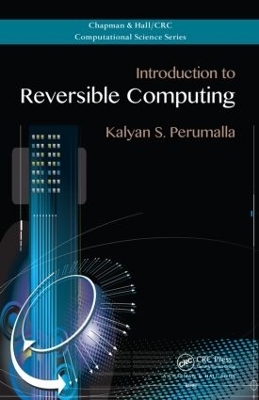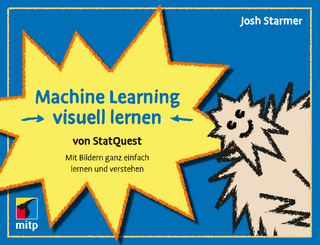
Introduction to Reversible Computing
Chapman & Hall/CRC (Verlag)
978-1-4398-7340-3 (ISBN)
Collecting scattered knowledge into one coherent account, the book provides a compendium of both classical and recently developed results on reversible computing. It explores up-and-coming theories, techniques, and tools for the application of reversible computing—the logical next step in the evolution of computing systems.
The book covers theory, hardware and software aspects, fundamental limits, complexity analyses, practical algorithms, compilers, efficiency improvement techniques, and application areas. The topics span several areas of computer science, including high-performance computing, parallel/distributed systems, computational theory, compilers, power-aware computing, and supercomputing.
The book presents sufficient material for newcomers to easily get started. It provides citations to original articles on seminal results so that readers can consult the corresponding publications in the literature. Pointers to additional resources are included for more advanced topics. For those already familiar with a certain topic within reversible computing, the book can serve as a one-stop reference to other topics in the field.
Kalyan Perumalla, PhD, is a senior R&D staff member and manager at Oak Ridge National Laboratory and an adjunct professor at the Georgia Institute of Technology. Dr. Perumalla is a winner of the prestigious U.S. Department of Energy Career Award in Advanced Scientific Computing Research (2010-2015). He has published over 100 articles in computing and serves on the editorial boards and program committees of leading journals and conferences in computing. He earned a PhD in computer science from the Georgia Institute of Technology. His areas of interest include reversible computing, high-performance computing, parallel discrete event simulation, and parallel combinatorial optimization.
INTRODUCTION: Scope. Application Areas. The Reversible Computing Spectrum. THEORY: Systems and Principles. Reversibility-Related Paradoxes. Theoretical Computing Models. Relaxing Forward-Only Execution into Reversible Execution. SOFTWARE: Reversible Programming Languages. Adding Reversibility to Irreversible Programs. Reverse C Compiler. Reversal of Linear Codes. Reversible Random Number Generation. Reversible Memory Allocation and Deallocation. Reversible Numerical Computation. Reversing a Sorting Procedure. Implementing Undo-Redo-Do. HARDWARE: Reversible Logic Gates. Reversible Instruction Set Architectures. SUMMARY: Future Directions. REFERENCES: Bibliography. Index.
| Reihe/Serie | Chapman & Hall/CRC Computational Science |
|---|---|
| Zusatzinfo | 29 Tables, black and white; 50 Illustrations, black and white |
| Sprache | englisch |
| Maße | 156 x 234 mm |
| Gewicht | 612 g |
| Themenwelt | Informatik ► Theorie / Studium ► Algorithmen |
| Informatik ► Weitere Themen ► Hardware | |
| Mathematik / Informatik ► Mathematik ► Arithmetik / Zahlentheorie | |
| ISBN-10 | 1-4398-7340-2 / 1439873402 |
| ISBN-13 | 978-1-4398-7340-3 / 9781439873403 |
| Zustand | Neuware |
| Haben Sie eine Frage zum Produkt? |
aus dem Bereich


